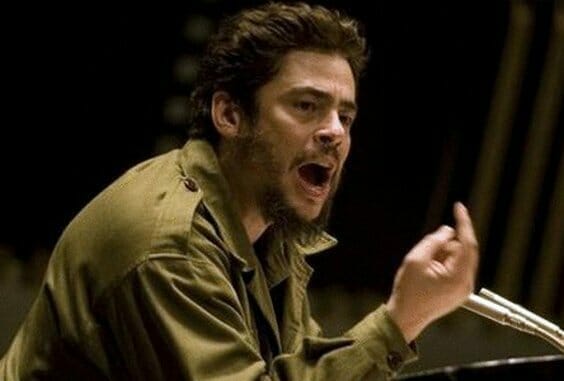Che: The Argentine & Guerrilla

Release Date: Jan. 24
Director: Steven Soderbergh
Writer: Peter Buchman
Cinematographer: Peter Andrews
Starring: Benicio Del Toro
Studio/Run Time: ?IFC Films, 257 mins.
-

-

-

-

-

-

-

-

-

-

-

-

-

-

-

-

-

-

-

-

-

-

-

-

-

-

-

-

-

-

-

-

-

-

-

-

-

-

-

-








































